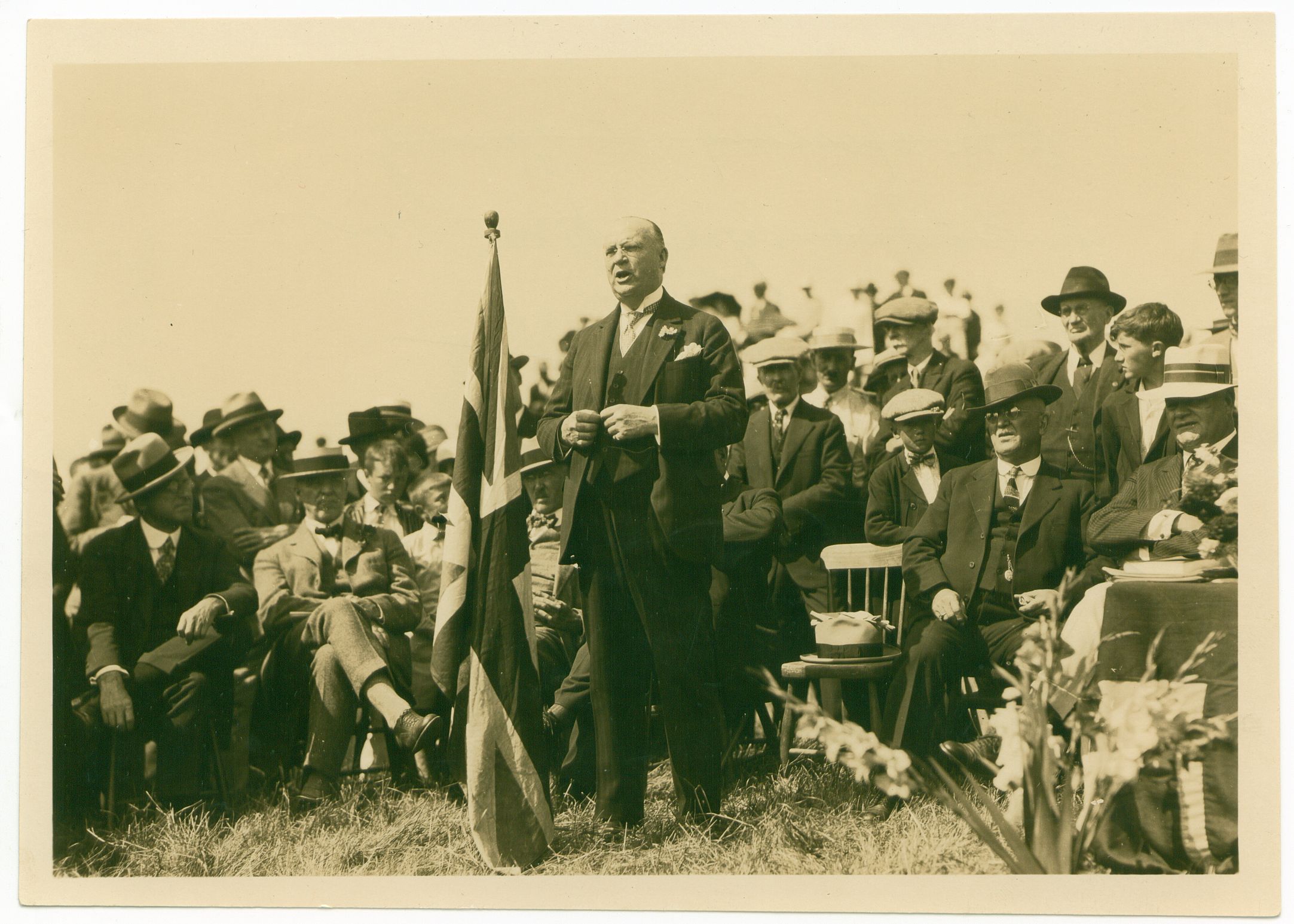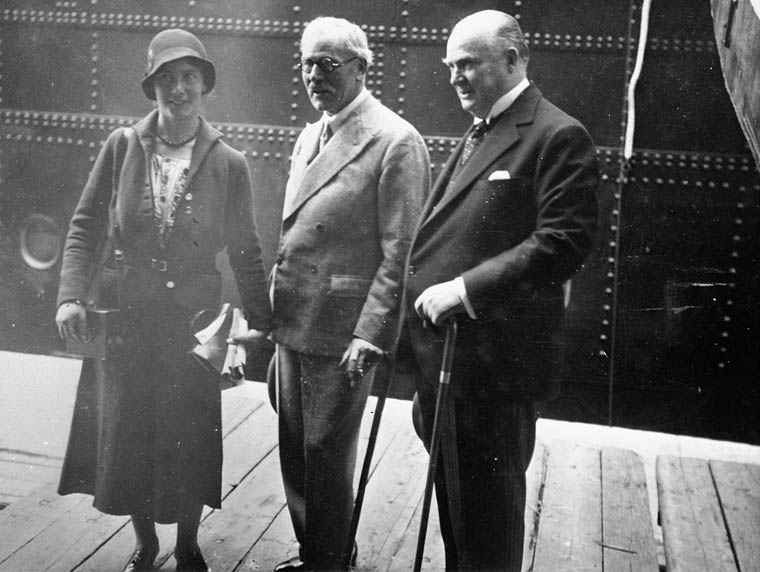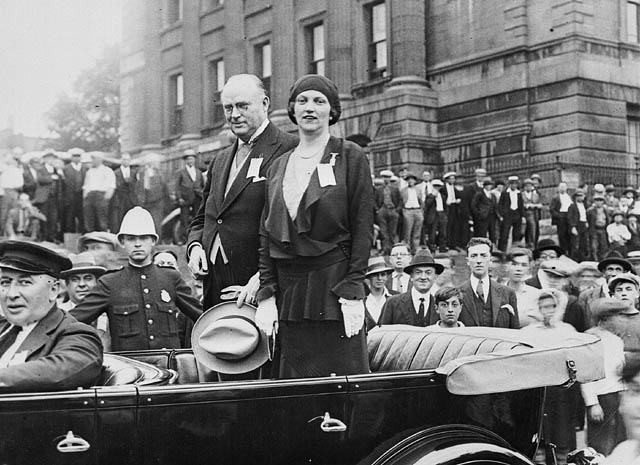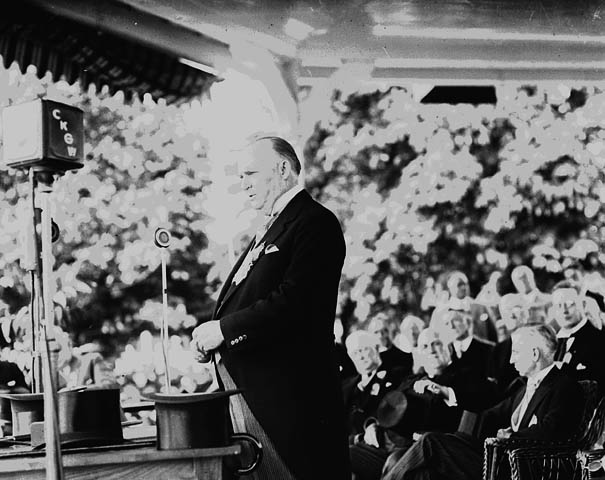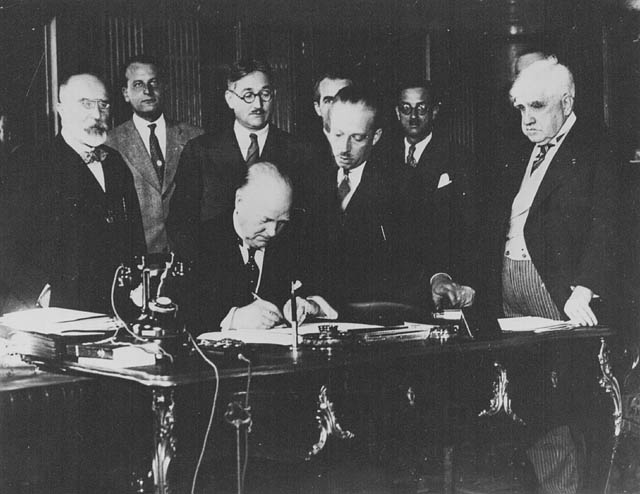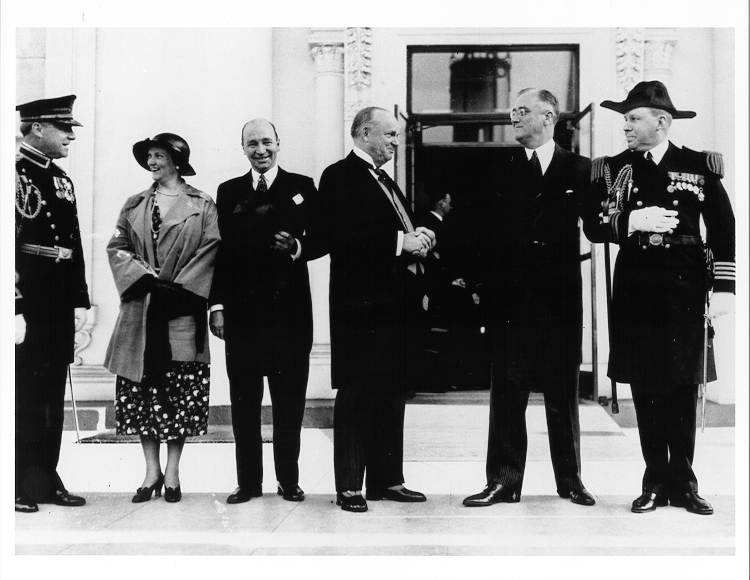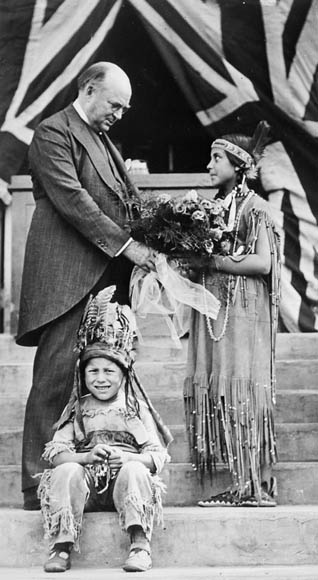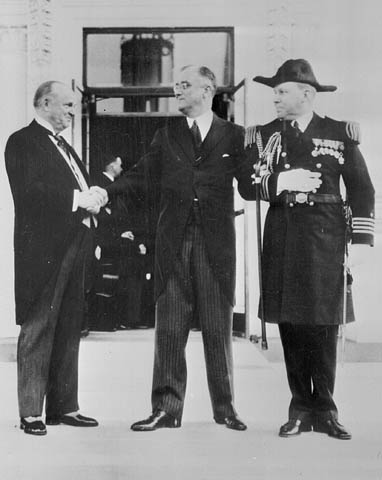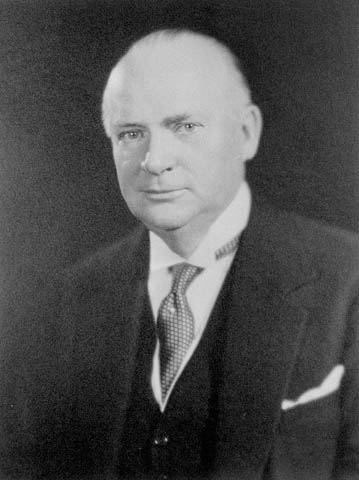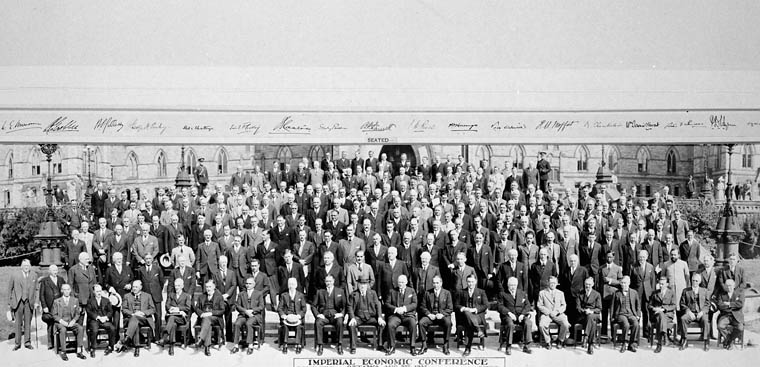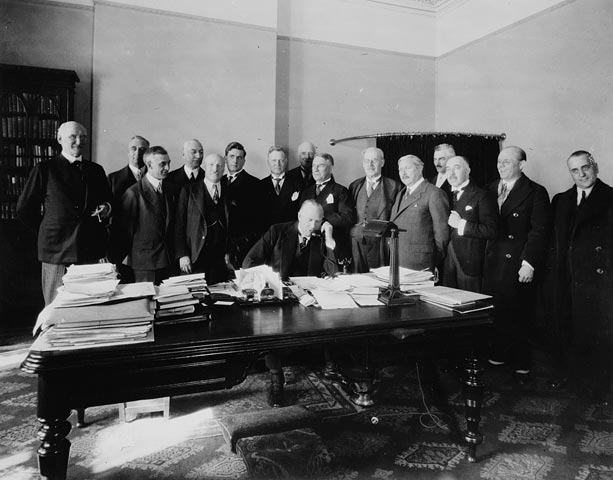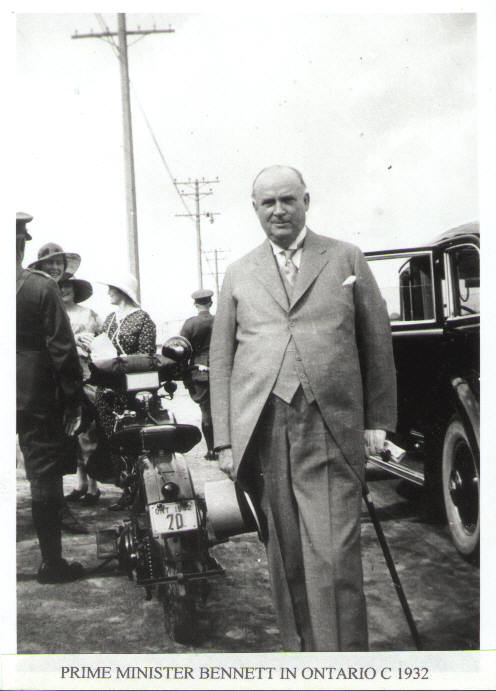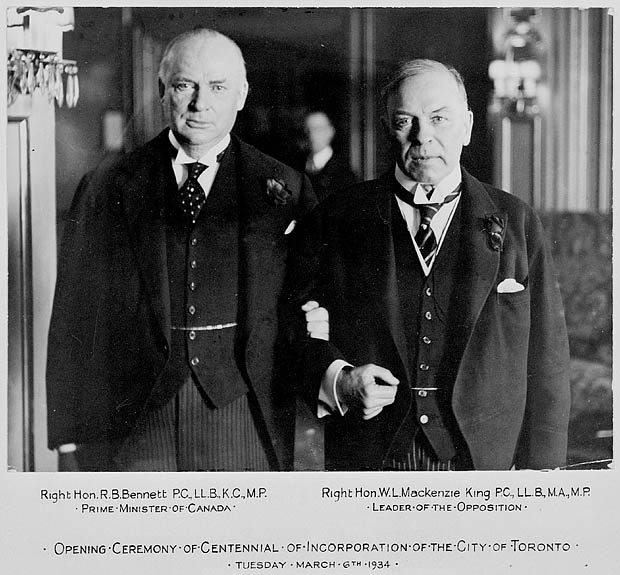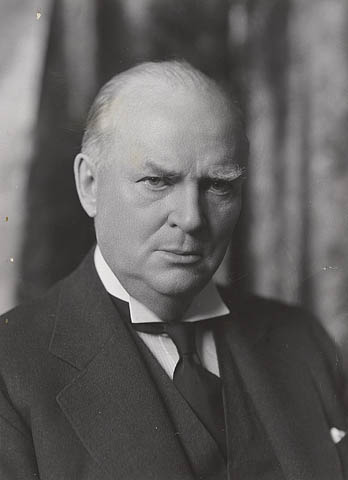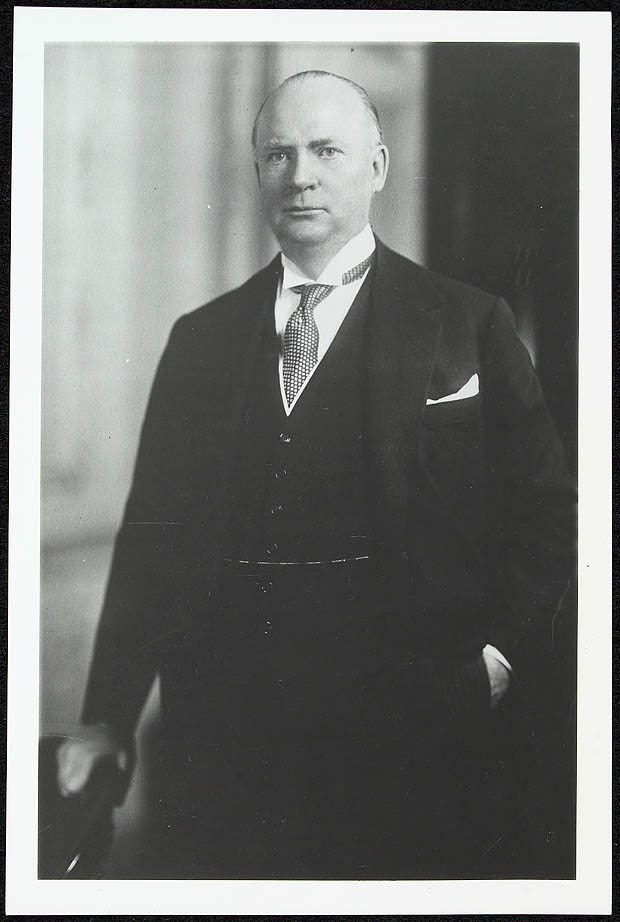Elected Prime Minister of Canada in 1930 with a strong majority, Bennett campaigned on a platform to provide progressive action to deal with the serious economic situation that would become known as The Great Depression. As the global economic depression continued to worsen, voters turned to governments for security that the economy could not provide. Traditional government measures which Bennett advocated, such as supporting the dollar and maintaining tariffs for dealing with deflation and unemployment, proved to be ineffective. Later, the new federal social welfare measures he introduced, such as early unemployment insurance and public work programs, called the “Bennett New Deal”, showed some early results during the last six months of his term, although they shocked many of his Conservative colleagues at the time. As the Depression continued amid declining provincial revenues that approached bankruptcy, especially in the West, the federal government had to contribute more to relief costs, further limiting Bennett’s programs through loss of government credit and revenues. As a result, Bennett faced isolation and major dissent across the country and even within his own party. The blame and responsibility for The Great Depression was attributed to Bennett personally with the Conservatives losing the election of 1935.
While Prime Minister of Canada R. B. Bennett created many progressive programs. He passed the Relief Act (1932); created the Canadian Broadcasting Commission (forerunner of the CBC); the central Bank of Canada (1935); and the Canadian Wheat Board (1935). In addition, Bennett signed the Statute of Westminster making the Canadian Parliament fully independent in its decisions.
